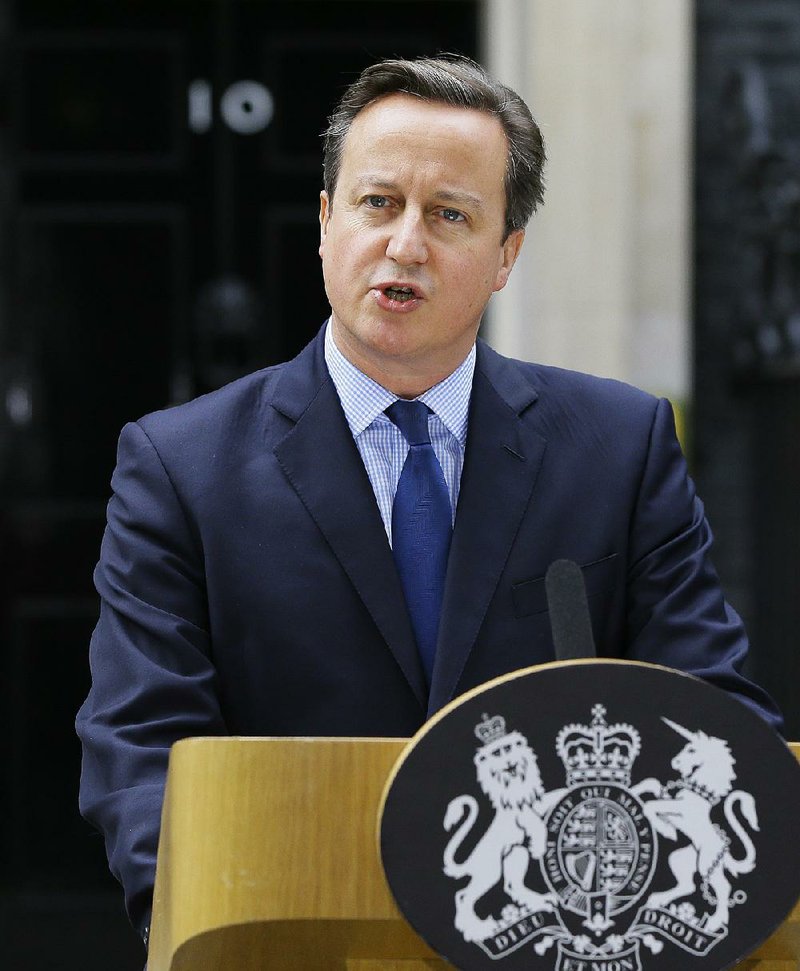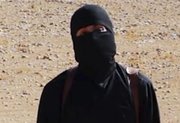WASHINGTON -- The U.S. military is "reasonably certain" its drone strike in Syria killed the masked Islamic State militant known as "Jihadi John," who appeared in several videos depicting the beheadings of Western hostages.
Army Col. Steve Warren, U.S. military spokesman in Baghdad, told reporters Friday that officials had been following Mohammed Emwazi, a Kuwaiti-born British citizen, for some time.
"The intelligence indicators that we had gave us great confidence that this individual was Jihadi John and when the opportunity presented itself -- with the opportunity for minimal civilian casualties -- we took the shot," Warren said. "This guy was a human animal, and killing him is probably making the world a little bit better place."
Another U.S. official said three drones -- two U.S. and one British -- targeted the vehicle in which Emwazi was believed to be traveling in Raqqa, the Islamic State's self-proclaimed capital in northern Syria. The official, who was not authorized to speak publicly and requested anonymity, said the U.S. drone, armed with a Hellfire missile, struck the vehicle.
Warren said Emwazi and one of his friends apparently were killed, and there were no civilian casualties. Officials are using a variety of human and signals intelligence, social media reports and other methods to confirm Emwazi's death. A Turkish official said authorities there have detained a man they suspect is linked to Emwazi. The man, who they strongly believe to be Aine Lesley Davis, was detained in Istanbul.
Warren said the operation was one in a string of targeted attacks on Islamic State leaders, adding that the U.S. has killed one mid- to upper-level Islamic State leader every two days since May.
Among those beheaded by Islamic State militants in videos posted online since August 2014 were U.S. journalists Steven Sotloff and James Foley, U.S. aid worker Abdul-Rahman Kassig, British aid workers David Haines and Alan Henning, and Japanese journalist Kenji Goto.
Foley's parents, John and Diane Foley of New Hampshire, issued a statement calling the purported death "a very small solace."
"His death does not bring Jim back. If only so much effort had been given to finding and rescuing Jim and the other hostages who were subsequently murdered by ISIS, they might be alive today," they said, using an acronym to refer to the Islamic State.
Likewise, Art and Shirley Sotloff said the development "doesn't change anything for us; it's too little too late. Our son is never coming back."
British Prime Minister David Cameron said the strike had been a joint effort to hit the British-accented militant, whom Cameron called the group's "lead executioner."
Cameron also said the strike had been "an act of self-defense ... a strike at the heart" of the Islamic State.
U.S. Secretary of State John Kerry, appearing at a news conference in Tunis, Tunisia, declared that extremists "need to know this: Your days are numbered, and you will be defeated."
The Britain-based Syrian Observatory for Human Rights said that U.S. coalition warplanes struck an Islamic State vehicle as it left the governor's office in Raqqa, Syria, killing four Islamic State foreign fighters, including a British commander. The activist group said the bodies were charred, and the group's chief, Rami Abdurrahman, said the commander killed in the attack was most likely Emwazi.
Emwazi was identified as "Jihadi John" last February, although a lawyer who once represented Emwazi's father told reporters that there was no evidence supporting the accusation. Experts and others later confirmed the identification.
Emwazi was born in Kuwait and spent part of his childhood in the poor Taima area of Jahra before moving to Britain as a boy, according to news reports quoting Syrian activists who knew the family. He attended state schools in London, then studied computer science at the University of Westminster before leaving for Syria in 2013.
Information for this article was contributed by Bassem Mroue, Jill Lawless, Ken Dilanian and Sagar Meghani of The Associated Press.
A Section on 11/14/2015


